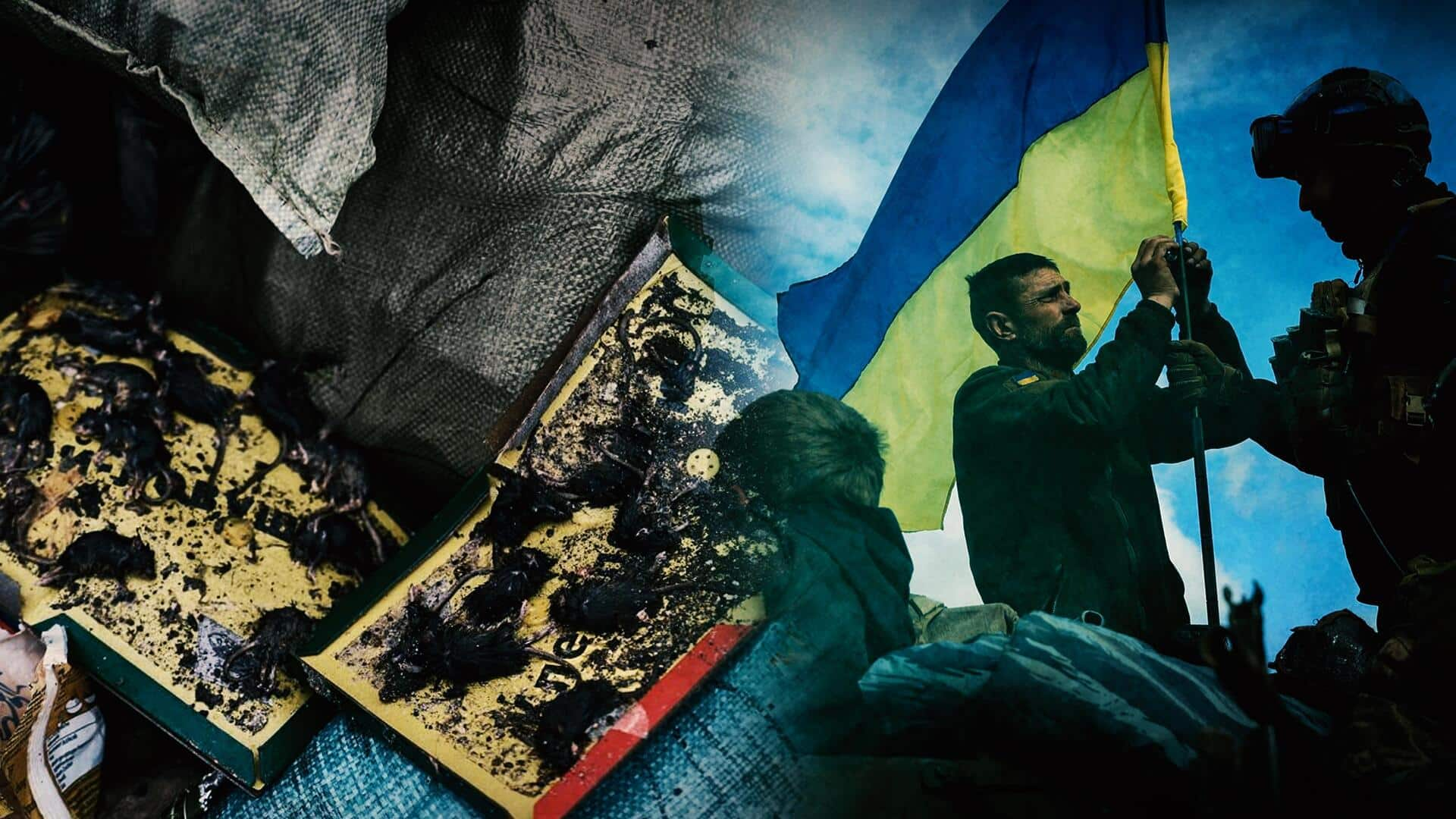
Rat and mice infestations plague warfront in Ukraine
What's the story
Rats and mice infestations have become a serious concern on the frontlines of Russia's war in Ukraine. According to CNN, the pests are spreading diseases, making soldiers vomit and bleed from their eyes, hampering combat capability. The infestation brings back memories of the gruesome conditions that plagued troops in the trench warfare of World War I. The infestation has been exacerbated by a stagnant war situation and severe winter weather.
Context
Why does this story matter?
The Russia-Ukraine crisis is nearing its second anniversary in February 2024, amid claims by Russia of intensifying its attack in the neighbouring country. Last month, Russian President Vladimir Putin signed a decree ordering to boost the Russian forces by 15%. On the other hand, Ukraine is facing a funding shortage with President Volodymyr Zelenskyy reportedly seeking support from the West, including the United States (US).
Details
Factors contributing to rodent infestation
The surge in mice is attributed to seasonal shifts, the mice mating cycle, and the stagnant war conditions. Ukraine's counteroffensive faced resistance from heavily fortified Russian defenses, resulting in a prolonged conflict. The nearly 1,000-kilometer frontline has now become a breeding ground for mice, spreading disease and discontent among troops in search of food and warmth. The rise in mouse breeding, according to Ukraine's National Museum of National History researcher Ihor Zahorodniuk, is due to unharvested winter crops in 2022.
What Next?
Outbreak of 'mouse fever'
In December, Ukraine's military intelligence documented a "mouse fever" outbreak among Russian units near Kupiansk in the Kharkiv region. Although CNN couldn't independently confirm the report, the disease was described as transmitted from mice to humans through inhaling mouse feces dust or ingesting it in food. Symptoms included fevers, rashes, low blood pressure, eye hemorrhages, vomiting, intense back pain, and urinary issues. According to Ukraine's Defense Intelligence the impact of "mouse fever" has markedly diminished Russian soldiers' combat effectiveness.
Insights
Military and electrical equipment damaged
Beyond inducing anxiety and illness among soldiers, mice have wreaked havoc on military and electrical equipment. As per the CNN report, the rodents infiltrated metal boxes, gnawing through wires and causing disruptions in communications. The financial losses resulting from the damage were substantial, totaling one million hryvnia ($26,500 or Rs 22.02 lakh) in one soldier's dugout alone.
World War II
Reminiscent of World War I
With Ukraine bracing for another severe winter, the issue of mice is anticipated to escalate. Zahorodniuk cautioned that colder temperatures would compel mice to seek refuge in trenches, worsening the situation. He said that there is a need for coordinated initiatives to tackle the infestation, underscoring its impact on the army's combat capability. The unusually high number of rodents is reminding people of World War I, where "trench rats" thrived in unclean conditions, causing trouble for the soldiers.